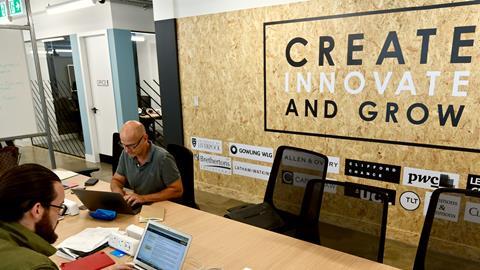Since we began working from home in earnest, my LinkedIn inbox has been full of lawtech promoters advertising the latest innovations that promise to make life as a solicitor (and the client experience) more efficient. Most will be familiar with what I call ‘matter management lawtech’, namely software or platforms that allow clients to oversee progress with their work or allow for e-signing, for example.

What is rare, and what we should all be interested in, is lawtech that we can programme to complete legal tasks such as document review and preparation (freeing up time for us to provide even better service to clients). As the Law Society’s recent Lawtech Adoption Research report noted, lawtech ‘is still nascent and less “disruptive” than other types of technology’.
As such, I am looking at two particular legal issues being resolved by lawyers programming lawtech: Libor phase-out; and lease and licence auto-production.
Libor phase-out
The London Inter-Bank Market Offered Rate (Libor) is a benchmark interest rate (determined by the rates at which major global banks lend to one another) to which most commercial loans are pegged. Following the global financial crisis there has been great mistrust surrounding how banks settle Libor rates and it is expected that Libor will be discontinued entirely by the end of 2021. This affects a number of practice areas and creates a significant workload for lenders and borrowers, given the large number of loans that are linked to Libor, each of which will need to be amended to refer to a new method of calculating the interest benchmark.
Where to start? Firms such as Simmons & Simmons have acquired lawtech businesses (many originating from Barclays Eagle Labs (pictured)) which use document-review technology to identify Libor clauses in client documents. In October, Macfarlanes won an AI Innovation award for developing software that analysed Libor clauses in a vast number of documents for a client in the financial sector.
These alternative approaches, rather than a team of juniors working through each document, enable the client to put a strategy in place for managing the Libor transition in a faster (and cost-effective) way.
Robo – leases and licences
Most property solicitors will begin their careers by drafting leases, licences and similar agreements governing the ownership and operation of real estate. Those at Addleshaw Goddard, for example, are assisted on projects by an automated contracts platform developed in-house. It allows clients or their managing agents to submit instructions online containing the details for the property document required. The software then uses the data to automatically produce a template lease or licence – for example, for the solicitor to review and approve before execution by the client, as well as feeding progress updates back to the client on built-in dashboards.
Many firms now use automated contract software to produce common and more complex documents for various practice areas, including wills, company incorporation and agreements for uncontested divorces. For clients this also has the added benefit of ensuring consistency across documents.
Next generation
Contrary to the naysayers, this shows that lawyers are not being replaced by robots. In fact, lawyers are programming, operating and advising in response to the robots. Moreover, the advent of the legal sector working from home en masse has forced many to adopt technology in their day-to-day working lives whether they wanted to or not. The market is dictating that solicitors (particularly juniors progressing day-to-day activities for clients) need to embrace technology that can advance their traditional tasks.
To the sceptics or scaremongers, I ask who really misses the typewriter, filling out Companies House paper forms, sewing up original deeds or paginating court bundles? In any event, the sector is now being overrun with new skills and delivery models, so juniors have no choice but to be ahead of this game in developing their legal engineer/technician and innovation skills.
A 2017 study by Thomson Reuters reported a 484% increase in the number of patents filed for new lawtech, with the US, China and South Korea as front-runners. With the UK’s investment in this area increasing by tens of millions of pounds each year, the general counsel of a large global financial institution recently told me how much clients are enjoying watching their lawyers, particularly English lawyers, joining the technologically innovative world of other leading UK industries.
Laura Uberoi, a senior solicitor at Macfarlanes, is Law Society Council member for solicitors 0-5 years’ PQE
































1 Reader's comment